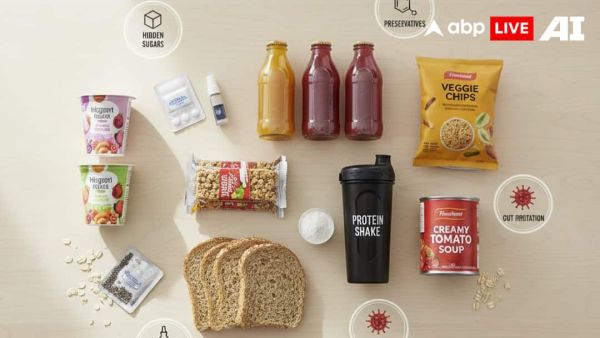
Not everything that is marketed as "healthy" truly supports your gut. In fact, some of the most popular foods in modern diets can quietly disrupt digestion, trigger bloating, fuel inflammation, or weaken the balance of gut bacteria. Many people consume these items daily believing they are making smarter choices, unaware that the long-term impact may be discomfort, acidity, constipation, fatigue, or unpredictable digestive symptoms.
Here are eight surprising items you assumed were good for you, but they might actually be harming your gut more than helping it.
1. Flavoured Yogurt

Flavoured yogurt may seem like the perfect healthy snack, but most varieties contain high levels of added sugar, artificial sweeteners, preservatives, and thickeners that wreak havoc on gut health. While plain yogurt does offer good bacteria, flavoured versions often undermine those benefits by overwhelming your system with sweeteners that fuel harmful gut microbes. Many flavoured yogurts also contain high-fructose corn syrup, which can increase intestinal inflammation and trigger bloating or loose stools. If you enjoy yogurt for its probiotic benefits, choose plain unsweetened yogurt or Greek yogurt and add fresh fruits or a drizzle of honey instead.
2. Granola And Healthy Breakfast Cereals
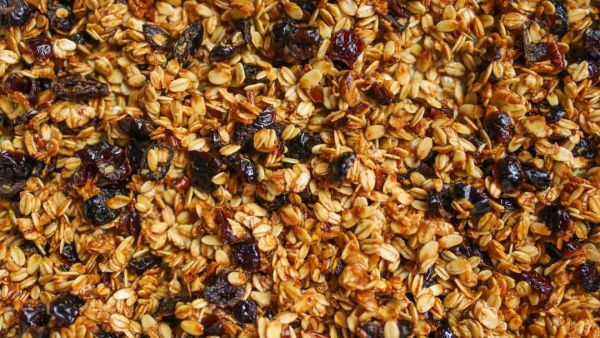
Granola is marketed as a nutritious, fibre-rich breakfast, but it’s often one of the most misleading foods in the supermarket. Most of them contain excess sugar, refined oils, additives, and toasted grains cooked at high temperatures that make digestion harder. Many brands use refined sweeteners like brown sugar, rice syrup, or molasses, which contribute to gut inflammation and imbalance healthy gut bacteria. Some granola clusters also include dried fruits coated in sugar or preservatives, making them heavy on the stomach. Breakfast cereals labelled “high fibre” or “whole grain” often hide artificial colours, flavours, and synthetic vitamins that your body struggles to process.
3. Protein Bars And Fitness Snacks

Protein bars may appear ideal for gym-goers and busy professionals, but they often contain synthetic protein isolates, artificial sweeteners, hydrogenated oils, and more that irritate the digestive tract. Sugar alcohols like sorbitol and maltitol, commonly found in these bars, are notorious for causing gas, diarrhea, and painful bloating because the gut cannot digest them properly. Additionally, highly processed fibres added to these snacks can overstimulate the gut, triggering bowel irregularity. The worst offenders are “low-carb” or “zero-sugar” protein bars, which rely heavily on chemicals and artificial flavourings. For a gut-friendly alternative, choose whole food snacks like nuts, seeds, dates, bananas, hummus, or roasted chana with jaggery.
4. Diet Soda And Zero-Sugar Drinks

Diet sodas are often chosen by health-conscious individuals who want to avoid sugar. They contain artificial sweeteners such as aspartame, sucralose, or saccharin, all of which can severely disturb gut bacteria and contribute to metabolic issues. These sweeteners trigger inflammation in the digestive system and may cause symptoms like bloating, acidity, nausea, and gas. Even “zero-calorie” drinks can contain harmful preservatives, phosphoric acid, and colouring agents that irritate the gut lining. A healthier and more refreshing alternative includes infused water, fresh lime water, chilled green tea, or coconut water.
5. Packaged Fruit Juices
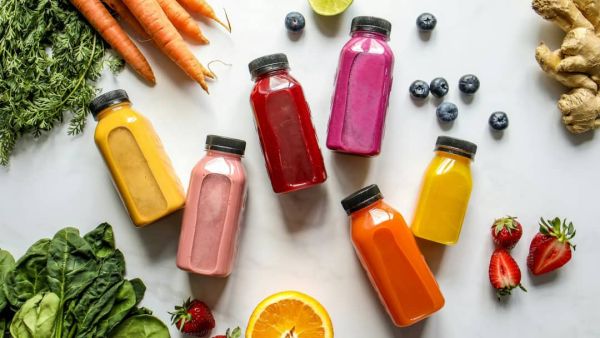
Packaged juices may seem like a nutritious choice, but they often contain concentrated sugars, minimal fibre, and preservatives that harm digestion. Even when labelled “100% fruit,” these juices typically undergo pasteurisation, which destroys natural enzymes and micronutrients that aid gut function. Many packaged juices also include artificial flavours that mimic fruit rather than actual fruit content. While fresh, whole fruits support gut health with fibre and antioxidants, packaged juices offer little nutritional value and may even worsen constipation or diarrhoea.
6. Gluten-Free Packaged Goods

Many people assume gluten-free snacks and baked goods are healthier, but most packaged gluten-free products contain refined starches, stabilisers, preservatives, excessive sugar, and low-quality flours. These ingredients lack fibre and digest very quickly, causing blood sugar fluctuations and feeding harmful gut bacteria. A healthier choice is to opt for naturally gluten-free foods like millets, quinoa, fresh fruits, vegetables, and legumes.
7. Smoothie Bowls Loaded With Toppings
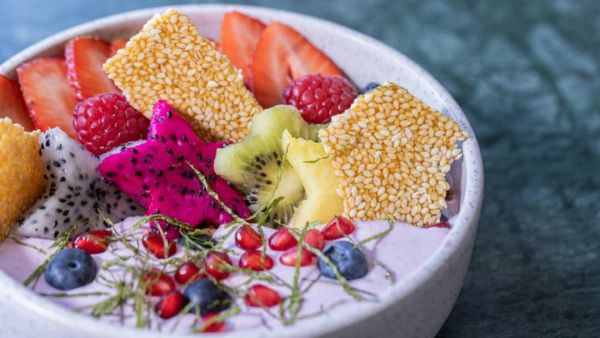
Smoothie bowls look vibrant and are often labelled “superfoods,” but overloading them with too many ingredients can overwhelm your gut. When fruits, seeds, nut butters, granola, and sweeteners are blended together, your body ends up digesting a very dense meal with excessive fructose, fats, and fibre at once. This combination can slow digestion, lead to fermentation in the gut, and cause bloating or heaviness. They weaken digestive fire, making it harder to break down nutrients. It’s best to simplify your smoothie bowls, use two fruits max, a small amount of healthy fat, and avoid sugary toppings.
8. Soy Products
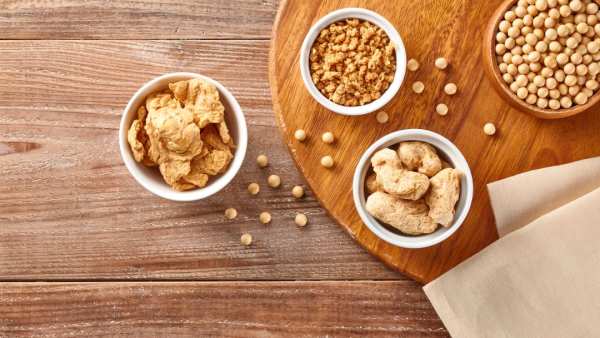
Soy can be a nutritious plant-based protein, but many modern soy products like soy chunks, soy milk, tofu snacks, or flavoured soy nuggets are highly processed. They may disrupt gut health. Some individuals struggle to digest soy because it contains lectins and phytates, compounds that can irritate the gut lining and hinder nutrient absorption. Overconsumption may lead to bloating, gas, constipation, or hormonal imbalance. If you enjoy soy, choose minimally processed, organic, and fermented varieties to support gut health.
-
UP Anganwadi Bharti 2025: Recruitment is going on for UP Anganwadi and Sahayika posts, know district wise till when you can apply..

-
Ladli Behna Yojana 30th Installment: Did you not receive Rs 1500 in your account? What should you do now?

-
KVS NVS Recruitment 2025: Announcement of recruitment for bumper posts in Central and Navodaya Vidyalayas, applications started..

-
PM Kisan Yojana: The wait for the 21st installment is over, Rs 2,000 each will be credited to your account on November 19..

-
mAadhaar vs e-Aadhaar: Same function, different features; what can the new app do that the old one can't? Understand the full details..
